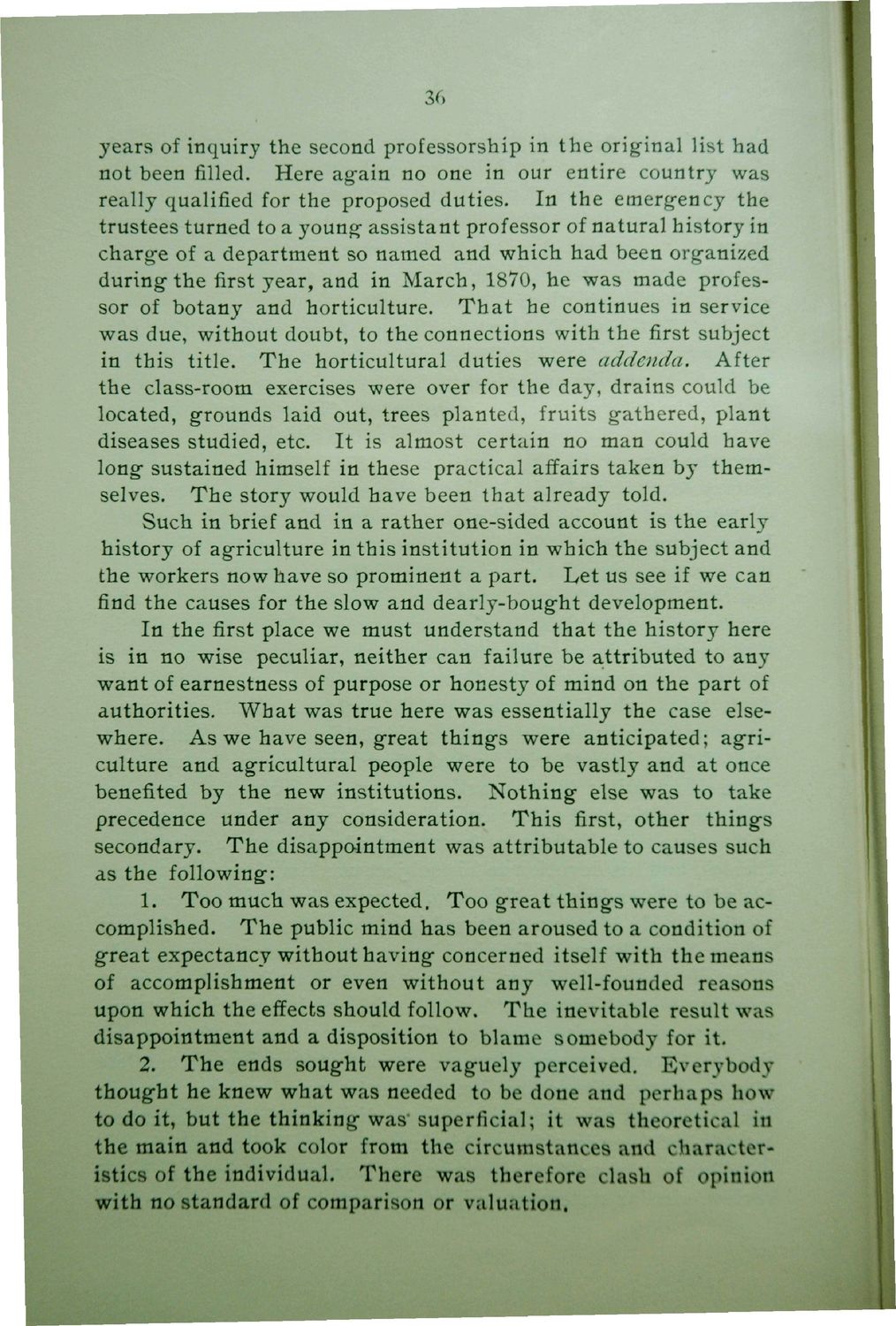| |
| |
Caption: Dedication - Ag Building
This is a reduced-resolution page image for fast online browsing.

EXTRACTED TEXT FROM PAGE:
36 years of inquiry the second professorship in the original list had not been filled. Here again no one in our entire country was really qualified for the proposed duties. In the emergency the trustees turned to a young assistant professor of natural history in charge of a department so named and which had been organized during the first year, and in March, 1870, he was made professor of botany and horticulture. T h a t he continues in service was due, without doubt, to the connections with the first subject in this title. The horticultural duties were addenda. After the class-room exercises were over for the day, drains could be located, grounds laid out, trees planted, fruits gathered, plant diseases studied, etc. It is almost certain no man could have long sustained himself in these practical affairs taken by themselves. T h e story would have been that already told. Such in brief and in a rather one-sided account is the early history of agriculture in this institution in which the subject and the workers now have so prominent a part. I^et us see if we can find the causes for the slow and dearly-bought development. In the first place we must understand that the history here is in no wise peculiar, neither can failure be attributed to any want of earnestness of purpose or honesty of mind on the part of authorities. What was true here was essentially the case elsewhere. As we have seen, great things were anticipated; agriculture and agricultural people were to be vastly and at once benefited by the new institutions. Nothing else was to take precedence under any consideration. T h i s first, other things secondary. T h e disappointment was attributable to causes such as the following: 1. Too much was expected. Too great things were to be accomplished. T h e public mind has been aroused to a condition of great expectancy without having concerned itself with the means of accomplishment or even without any well-founded reasons upon which the effects should follow. T h e inevitable result was disappointment and a disposition to blame somebody for it. 2. T h e ends sought were vaguely perceived. Everybody thought he knew what was needed to be done and perhaps how to do it, but the thinking was' superficial; it was theoretical in the main and took color from the circumstances and characteristics of the individual. There was therefore clash of opinion with no standard of comparison or valuation.
| |